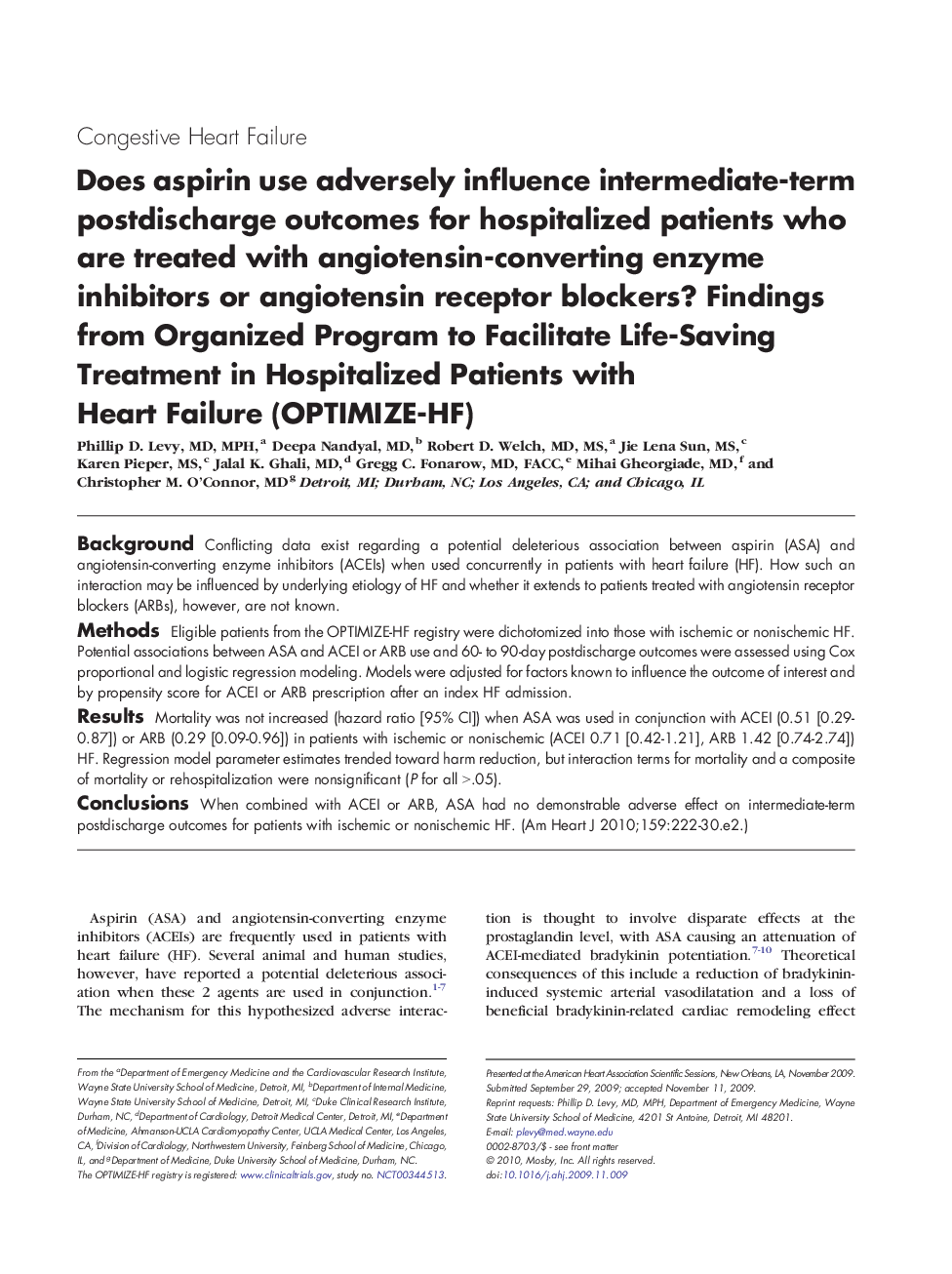| Article ID | Journal | Published Year | Pages | File Type |
|---|---|---|---|---|
| 5929296 | American Heart Journal | 2010 | 11 Pages |
BackgroundConflicting data exist regarding a potential deleterious association between aspirin (ASA) and angiotensin-converting enzyme inhibitors (ACEIs) when used concurrently in patients with heart failure (HF). How such an interaction may be influenced by underlying etiology of HF and whether it extends to patients treated with angiotensin receptor blockers (ARBs), however, are not known.MethodsEligible patients from the OPTIMIZE-HF registry were dichotomized into those with ischemic or nonischemic HF. Potential associations between ASA and ACEI or ARB use and 60- to 90-day postdischarge outcomes were assessed using Cox proportional and logistic regression modeling. Models were adjusted for factors known to influence the outcome of interest and by propensity score for ACEI or ARB prescription after an index HF admission.ResultsMortality was not increased (hazard ratio [95% CI]) when ASA was used in conjunction with ACEI (0.51 [0.29-0.87]) or ARB (0.29 [0.09-0.96]) in patients with ischemic or nonischemic (ACEI 0.71 [0.42-1.21], ARB 1.42 [0.74-2.74]) HF. Regression model parameter estimates trended toward harm reduction, but interaction terms for mortality and a composite of mortality or rehospitalization were nonsignificant (P for all >.05).ConclusionsWhen combined with ACEI or ARB, ASA had no demonstrable adverse effect on intermediate-term postdischarge outcomes for patients with ischemic or nonischemic HF.
